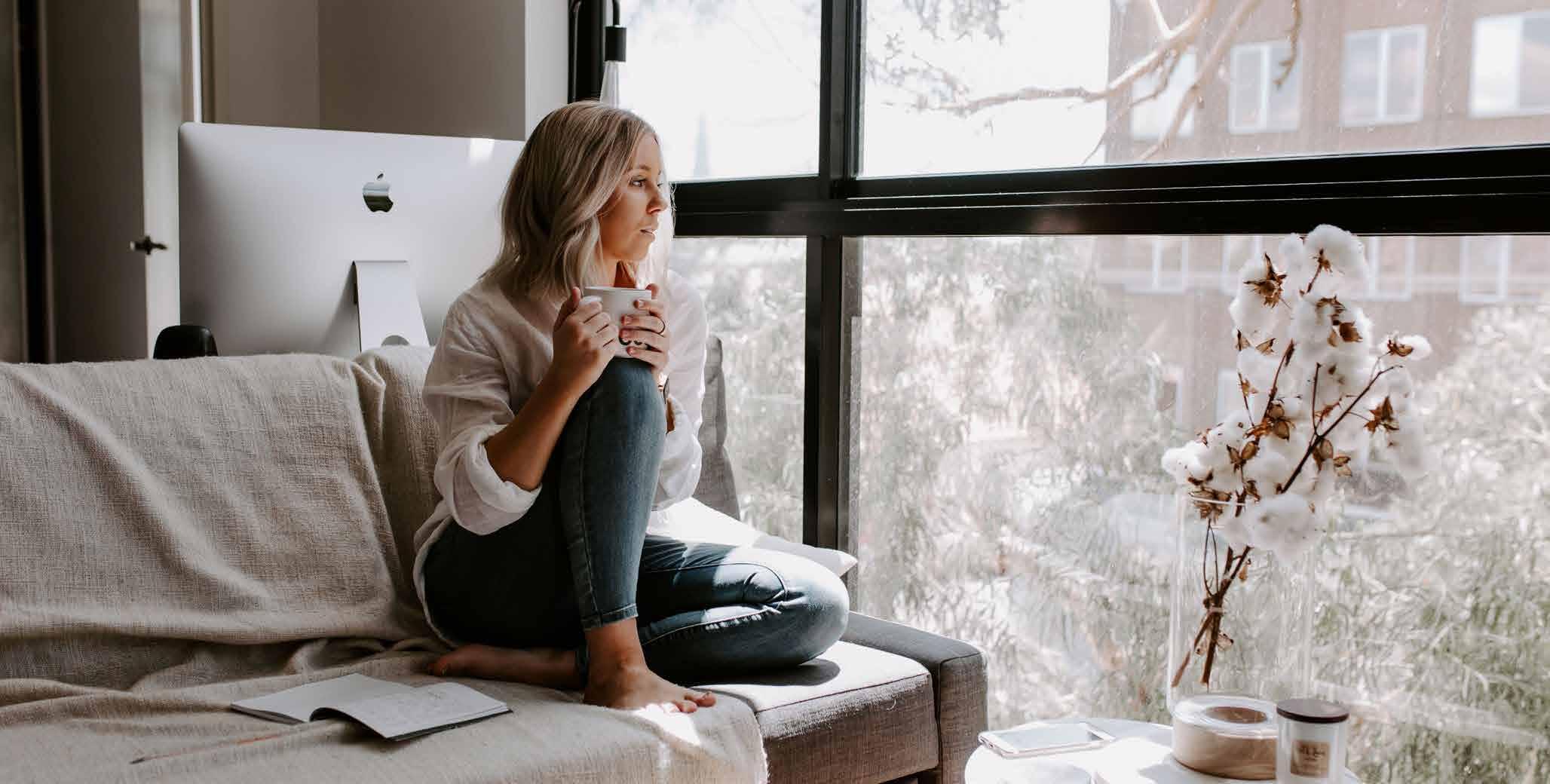4 • THE CAMBERWELL CITIZEN • ISSUE #7
S TAT E O F A N X I E T Y Our mental health has been placed under enormous pressure from the coronavirus pandemic, with many of us struggling with the outbreak’s impact on our lives. Here’s how you can manage your anxiety during this challenging time.
The coronavirus (COVID-19) outbreak has disrupted most parts of normal life, leaving many people feeling anxious and uncertain. Psychologist Kerry Athanasiadis, of Be You Psychology & Counselling in Camberwell, said feeling some anxiety right now was completely normal. “When there is a crisis or traumatic event or significant event like the one we’re going through now, people go into what are called fight, flight and freeze responses, which are body stress responses,” she said. The fight response sees people shift into making plans and taking action, while the flight response sends people into denial and avoidance. In freeze mode, people fall into a state of helplessness and depression. “Most people will cycle all three responses at some point. Some days you might be in action mode and others you might be feeling uncertain,” Ms Athanasiadis said. However, Ms Athanasiadis said we need to take steps to minimise that stress early on. “In the long term, we know that chronic stress does impact on our immune system,” she said. “When your body is constantly releasing cortisol into the blood stream, it can lower your immune defences over time. “I’m encouraging everyone to prioritise their mental health now — if people are constantly in fight, flight and freeze responses, it really does impact on your immune system over time.” One way to improve your mental health is to establish a daily routine. For people working from home or unable to leave the house, it’s important to maintain your normal routine. For example, if you usually go to the gym every day, then you should try to move your body at home in some way, whether it’s practising yoga or by doing a circuit of simple exercises. “When everything is changing around you, it’s about trying to maintain some kind of control over yourself,” Ms Athanasiadis said.
CITIZEN
You can help lower your stress levels by eating a healthy and balanced diet, getting at least eight hours sleep, and practising relaxation or meditation at home.
“ I N T H E L O N G T E R M , W E K N OW T H AT C H R O N I C S T R E S S D O E S I M PA C T O N O U R I M M U N E S Y S T E M ”
Psychologist Kerry Athanasiadis, of Be You Psychology & Counselling in Camberwell





